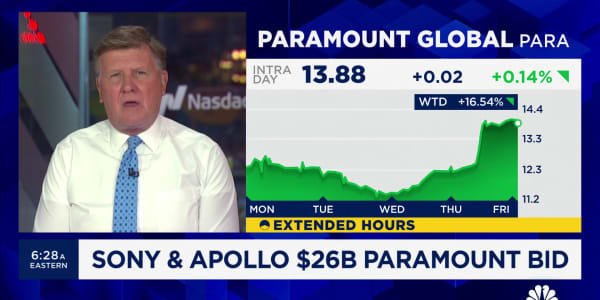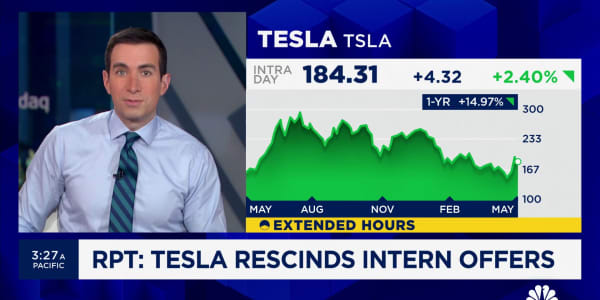Recapping the day's news and newsmakers through the lens of CNBC.
Does Microsoft need to be so desperate?
Notes:
Microsoft said Tuesday it will boost its dividend by 22 percent and buy back $40 billion in stock, a common move aimed at boosting the share price. So, does this mean Microsoft is healthy or sick? Using cash this way is often seen as an admission a firm can't think of anything better to do with it, like prepare the next blockbuster product. Microsoft does have some troubles—it's searching for a new CEO and undergoing a reorganization as it plays catch up in mobile services. And some shareholders slammed its recent decision to buy Nokia's mobile business for $7 billion.
Quotes:
"I think there's a shareholder base that was very unhappy with the Nokia deal."—CNBC's David Faber
"This is a desperate company that doesn't need to be desperate. ... They've got to split the company up, I've been saying that for a long time."—CNBC's Jim Cramer
Things will get much, much worse
Notes:
No, not for Microsoft. For the federal government. Let's not forget that deficit, people! Yes, it's much smaller than it was, but things will get much, much worse if something isn't done. That's the essence of a new Congressional Budget Office report which says that over the next three decades costs for an aging population will raise annual deficits to 6.4 percent of gross domestic product, from this year's 3.9 percent.
Quote:
"Spending on federal health programs and Social Security will rise by 2038 to 14 percent of GDP. That's twice the ... average for the last 40 years."—CNBC's John Harwood
The elusive boomer inheritance
Notes:
Financial planners and economists have long talked about the great "wealth transfer" that will come as baby boomers inherit assets from their parents, but many of those boomers aren't so optimistic. So here's good news: half of those who expect nothing will probably get something. Unfortunately, the Great Recession wiped out $16 trillion in household net worth, so boomers are wise to be conservative in anticipating inheritances.
Quote:
"The baby boomer generation is, without question, going to be the largest wealth transfer in American history ... from them to the next generation."—Derek Gabrielsen of Strategic Wealth Partners
Start-ups to feed the needy
Notes:
Scott McNealy—the chairman of Wayin and co-founder of Sun Microsystems—says the wealthy should give less to charity and invest more of their money in start-ups. If Bill Gates and Warren Buffett had given their fortunes to budding entrepreneurs rather than the needy, they could have created many more jobs, he said.
Quote:
"The last thing I want to do is tell Bill Gates and Warren Buffett how to spend their money. But imagine if they had taken their tens of billions of dollars, chopped it up into $5 million chunks and pledged it to a business plan, sponsored by an MBA graduating from an MBA school with engineers and marketeers that he's recruited and they got 50 percent of the company back to the foundation."—Scott McNealy, chairman of Wayin and co-founder of Sun Microsystems
Qualifying the chance of another mortgage collapse
Notes:
Six or seven years ago few worried the mortgage market could collapse. Could it happen again? Federal rules now bar the most toxic types of mortgages, and require that lenders make sure borrowers really can afford their payments. The key question: How many lenders will opt to operate outside the government's new "qualified mortgage" category, so they can lend to borrowers who otherwise couldn't be approved? These loans would be more costly for borrowers, and would pay investors bigger returns than they'd earn on other mortgage securities.
Quote:
"I am quite confident that a senior funding market will develop for non-QM loans—I have no doubt about that at all. It is simply too big of a market."—Raj Date, former deputy director at the Consumer Financial Protection Bureau
—By Jeff Brown, Special to CNBC.com.





